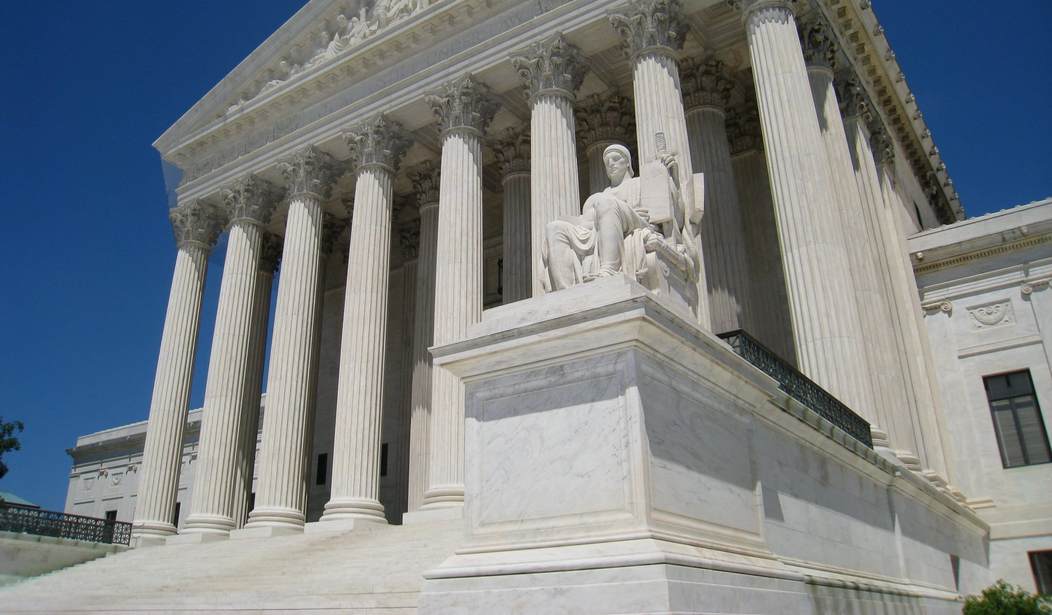On Tuesday, the Supreme Court ruled that a California law mandating that pregnancy resource centers (PRCs), most of which are pro-life, must advertise abortion on placards likely violated the First Amendment. The case, National Institute for Life Advocates (NIFLA) v. Becerra, marks a key victory for free speech against the forced definition of abortion as healthcare.
In this law, California “imposes an unduly burdensome disclosure requirement that will chill [PRCs’] protected speech,” Justice Clarence Thomas wrote, delivering the opinion of the Court. His fellow conservatives — Chief Justice John Roberts, and Justices Anthony Kennedy, Samuel Alito, and Neil Gorsuch — concurred, while the liberal justices — Stephen Breyer, Ruth Bader Ginsburg, Sonia Sotomayor, and Elena Kagan — dissented.
The case revolved around California’s so-called Reproductive FACT (Freedom, Accountability, Comprehensive Care, and Transparency) Act. The Act mandated that any facility that provides care to pregnant women — from ultrasounds and prenatal care to counseling about contraception or even pregnancy testing — is required to post the following notice (emphasis added):
California has public programs that provide immediate free or low-cost access to comprehensive family planning services (including all FDA-approved methods of contraception), prenatal care, and abortion for eligible women. To determine whether you qualify, contact the county social services office at [insert the telephone number].
The bill became law in October 2015 and mandates fines of $500 for the first offense after 30 days, and $1,000 for each subsequent offense. Every PRC must post the notice or face government censorship.
“In essence, the law mandates that pro-life centers become abortion referral agencies, totally against their convictions, against their foundational beliefs, compelling speech,” NIFLA President and CEO Tom Glessner told PJ Media in February.
While the Court struck down the notices as is, the ruling allowed for the possibility that California may find a reason to satisfy “strict scrutiny” in mandating a notice that does not violate the First Amendment. Therefore, it remanded the case to lower courts.
In his dissent, Justice Breyer argued that previous laws requiring abortion clinics to tell the woman about the abortion procedure, health risks, and the availability of support for childbirth and adoption — which the Court ruled did not violate the abortion clinic’s free speech — justify the California law mandating pro-life centers advertise the availability of abortion. This obscured the issue, however, as abortion clinics are not founded on opposition to adoption, while many PRCs are founded and predicated on serving women in order to help them avoid choosing abortion.
PRCs fundraise and operate on the assumption that abortion involves killing an unborn child, and therefore forcing them to advertise abortion is categorically different from advertising the risks of abortion and the availability of resources for birth and adoption at an abortion clinic.
“Advertising or promoting abortion runs directly counter to the very reason pregnancy care centers exist — namely to enable and support women who want to choose life for their children to do so,” Jeanne Mancini, president of the March for Life, said in a statement on the ruling. “The government has no business compelling these centers to work against their life-affirming mission, violating their first amendment right to free speech.”
Mancini applauded the Supreme Court’s decision bolstering PRCs’ ability to provide “comperehensive and critical support to women in need, including providing over $100 million in free services (child care, clothing, diapers, transportation, etc.) annually.”
Other pro-life leaders emphasized the radical nature of the pro-abortion movement. “Today’s decision protecting pregnancy centers from having to advertise or refer for abortion reveals the extremism of the abortion industry,” Ashley McGuire, senior fellow at The Catholic Association, said in a statement.
“These centers exist to offer women a clear alternative to abortion and the abortion lobby bullied them all the way to the Supreme Court because they could not tolerate authentic choice for women. From the start, the case was a free-speech no brainer,” McGuire declared. “Our First Amendment right to freedom of speech not only protects the right to speak out, it protects the right not to speak. Compelled speech is the doing of authoritarian regimes, not free and flourishing democracies.”









Join the conversation as a VIP Member